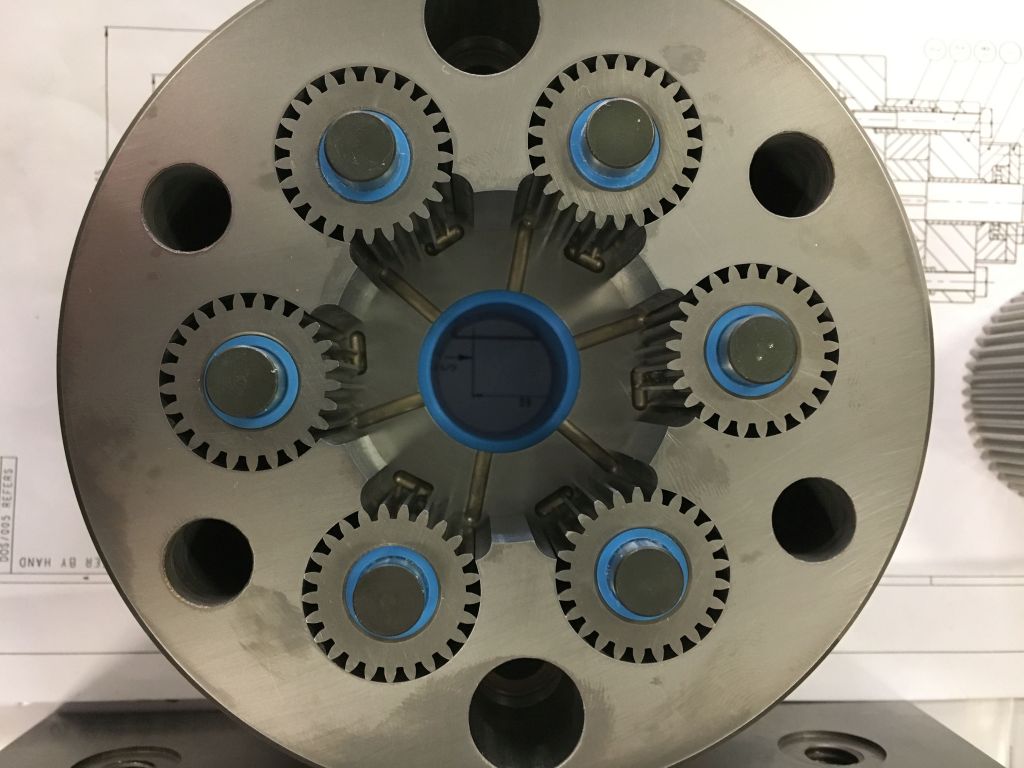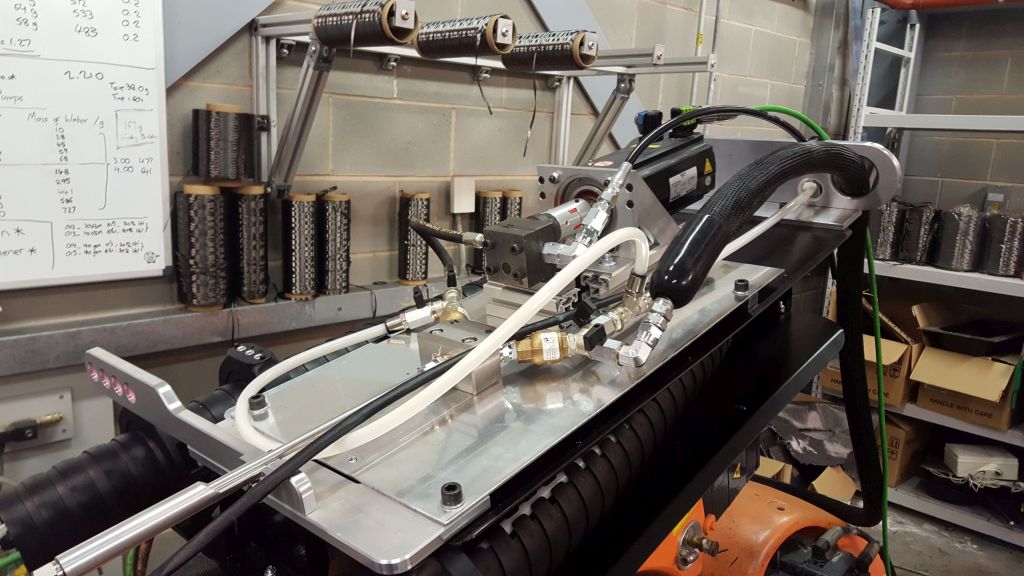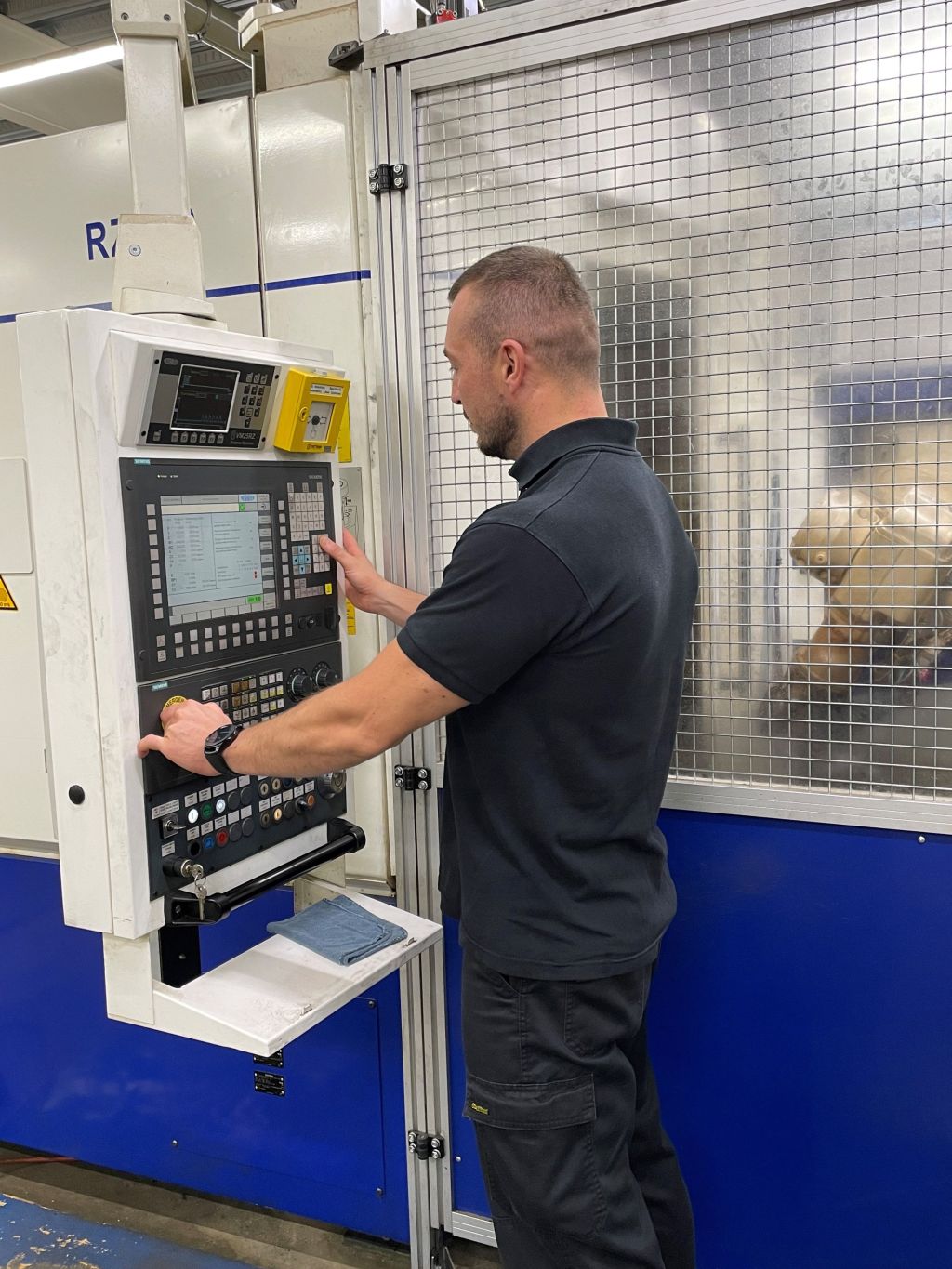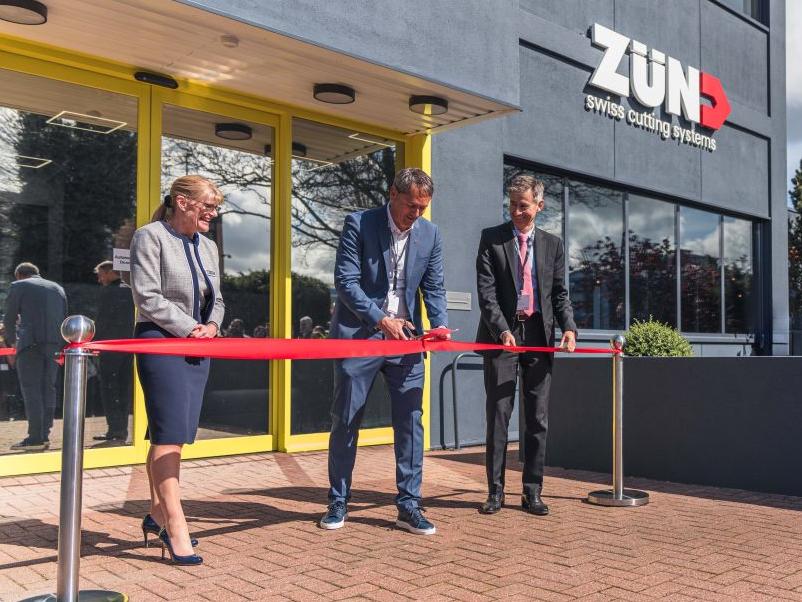Pump up the volumes!

Neil Anderton, Slack & Parr’s hydraulics & industrial director discusses the role of precision metering in high-volume composite production.
Slack & Parr is a leader in the design and build of precision pumps, including resin metering technologies that offer the composites industry an alternative to methods, such as wet-out and hand layup systems. Its pump solutions are relevant to every area of the composites industry where the need to precisely determine the fibre-to-resin ratio is key to the manufacture of composite materials and parts.
They are designed to deliver very precise amounts of resins or polymers of different viscosities into the manufacturing process at controlled speeds, with pulseless flow and uniform pressure, enabling manufacturers to apply resins directly at the point of application in a way that is robust, reliable, and repeatable.

Processes, such as filament winding and prepreg production rely on the successful application of resin to fibre to determine the characteristics of the finished materials and parts. Methods of resin application include traditional wet-out systems – also known as dip tanks and bucket systems – hand lay-up, and, more recently, metered systems.
Wet-out systems offer a simple and low-cost, but often time-consuming and typically messy solution. A significant drawback to this type of system is that once it is poured into the tank, the resin begins to cure or set. This means that only longer cure time resins are normally used in wet-out applications, which in turn limits the speed of manufacturing and makes high volume manufacturing more difficult to achieve.
Hand lay-up is considered the oldest and simplest technique used in the manufacture of composites. Dry fibres are placed in a mould and a resin matrix is manually applied beforehand rollers or brushes are used to distribute the resin to the required thickness. Achieving uniform coverage using this process can be difficult for anyone but the most skilled and experienced technicians.
Precision metering
Precision metering is a way of applying measured amounts of resin onto the fibre or substrate using specially designed pumps built around finely tuned gears. The resin can be metered into a resin bath or directly onto the fibre, which results in less waste and less mess.
Using a metering pump to accurately measure and control the flow of resin enables manufacturers to use only the minimum amount of resin necessary to create thinner, lighter materials with lower fibre-to-resin ratios that are typically stronger. By using less resin in the finished part, they can reduce costs and create stronger and more energy efficient components.

As manufacturers look for ways to make more parts faster, their processes require resins that cure more quickly so that parts can be fed through and out of the manufacturing line more efficiently. Working with short pot-life resins requires more efficient application, and this is where precision metering comes into play.
High volume manufacturing is a fast-emerging requirement in the filament winding market, for example. Here, manufacturers are gearing up to fulfil the needs of rapidly growing sectors such as hydrogen-powered transport where demand for filament wound pressure vessels is anticipated to rise considerably in the coming years.
Dynamic application
Resins are notoriously sensitive to environmental conditions – particularly temperature and moisture - which can cause their properties to change and degrade quickly and permanently. As a result, some resins have to be stored in temperature-controlled systems and manufacturers only have a short time to mix and apply them, which can add intense practical pressure to the process. Metering systems can help to overcome these challenges by containing the resin and its constituent parts separately right up until the point of mixing or fibre application, minimising their exposure to the environment and to each other and protecting their physical and chemical integrity. Live, dynamic resin application like this offers considerable control benefits over alternative methods such as dipping in a resin bath, including cutting processing time, and is particularly effective as part of a filament winding process where fibre tows are coated in resin as they are being wound into a part.
Metering technologies offer an effective way to accurately measure the constituent parts of a resin – for example a two-part epoxy system - to achieve a matrix with the exact characteristics required for an application. Being able to easily and reliably control fluids to create resin matrixes with specific features is useful to manufacturers, particularly when even slight changes in the ratios of constituent parts can result in resins that don’t perform in the desired way and have to be scrapped. Mixing and application can be performed dynamically and very accurately. Different elements of a matrix will often have different characteristics, viscosities, and natural flow rates, but precision pumps can bring them together in exactly the right ratios, time and time again. Taking this a step further, ratios can easily be adjusted via the pump to refine the recipe and create new resin systems with different characteristics, such as faster curing time and better mould release.

Controlled resin metering can also lead to important waste reduction and efficiency benefits. Automated, accurate systems by definition create significantly less waste than manual systems. Two-part resin mixing directly at the point of application (with each part being run from a separate pump) means that catalysts and hardeners are only combined at the point of use, reducing the chances of premature curing or degrading and therefore leading to less waste. Pumps can be designed with flushing systems for on-site cleaning and efficient change-over of resins, meaning less energy is used at start-up as the equipment can be left clean and ready to go again after the previous usage. The technology is also ideally suited for use as part of an automated manufacturing solution incorporating robotics to further increase efficiency and productivity.
Adaptable technology
The speed or rate of resin application is a key consideration that can be easily controlled through precision metering. Metering technologies can be engineered to monitor and dynamically modify the speed at which resins are pumped into the process, adapting to the smallest variations in speed caused by other variables, such as changes in the rate of fibre feed.
Metering pumps can also handle fluids of varying properties and adapt to changes in viscosity and pressure that occur during the process, typically as a result of temperature variations, to ensure consistent speed and flow. Similarly, a pump can be adapted to handle resins and polymers with special elements, such as those containing abrasive or corrosive particles. This can be done using particular construction materials and hardwearing coatings to handle mediums containing acids or abrasive particles.
We’re seeing the next step change in the development of composites manufacturing technologies. As the market moves towards higher volume production and strives to reduce waste, cut costs and improve processing speeds without compromising quality, precision resin metering can help manufacturers to move forward competitively.









